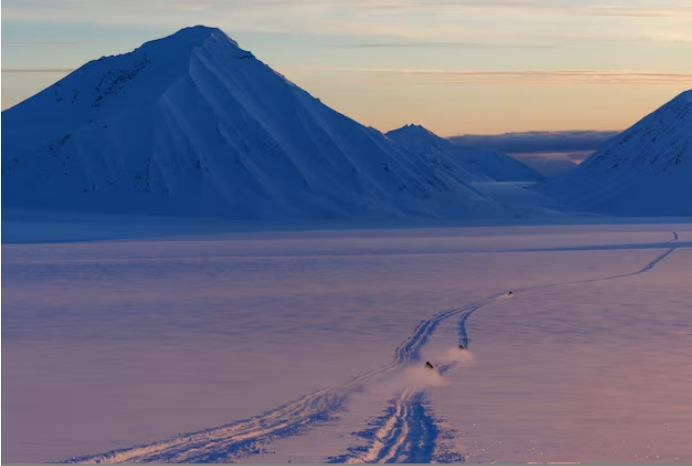
The Norwegian government said on Monday it had blocked a plan to sell the last privately owned piece of land on the strategic Arctic archipelago of Svalbard in order to prevent its potential acquisition by foreign actors such as China.
The remote Sore Fagerfjord property in southwestern Svalbard — 60 square kilometres (23 square miles) of mountains, plains and a glacier — was on sale for 300 million euros ($326 million).
The archipelago is located halfway between mainland Norway and the North Pole, in an Arctic region that has become a geopolitical and economic hotspot as the ice melts and relations grow ever frostier between Russia and the West.
Twice the size of Belgium, Svalbard is governed under an unusual legal framework that allows foreign entities to gain footholds in the region.
A treaty signed in 1920 recognises Norwegian sovereignty over the territory but it also gives citizens of the signatory powers — which include Russia and China — the same rights to exploit its mineral resources.
Russia, for example, has maintained coal mining communities on Svalbard, via the state-run company Trust Arktikugol, for decades.
Yet Norway, keen to protect its sovereignty, would not look kindly on the property falling into foreign hands, and the government said Monday a potential sale will require state approval under national security law.
“The current owners of Sore Fagerfjord are open to selling to actors that could challenge Norwegian legislation in Svalbard,” Trade and Industry Minister Cecilie Myrseth said.
“It could disturb stability in the region and potentially threaten Norwegian interests,” she added.
The ministry again made an offer of 20 million kroner ($1.9 million) for the property last week, Fredrik Sejersted, the attorney general acting on the government’s behalf, told AFP on Monday.
That offer — a tiny fraction of the owners’ 300-million-euro asking price — was refused.
Lawyer Per Kyllingstad, who represents the sellers, has previously told AFP that he had received “concrete signs of interest” from potential Chinese buyers who have “been showing a real interest in the Arctic and Svalbard for a long time.”
The piece of land is a unique occasion to grab the “last private land in Svalbard, and, to our knowledge, the last private land in the world’s High Arctic,” he said.
Kyllingstad did not immediately respond to the government announcement.
The property’s seller is a company controlled by a Russian-born Norwegian, according to local media.
Critics are sceptical about the price and feasibility of the sale. The property, in the southwest of the archipelago, a region without roads or infrastructure, covers protected areas where construction and motorised transport are prohibited, stripping it of commercial value.
The Norwegian state owns 99.5 percent of Svalbard and has declared most of the land, including the Sore Fagerfjord property, protected areas where construction and motorised transport, among other things, are prohibited.
But the sellers cite the 1920 treaty to argue that owners can exploit and develop their properties.
In 2016, the government paid 33.5 million euros to acquire the second-last piece of private land on Svalbard, near Longyearbyen, the archipelago’s main town, which was also reportedly being eyed by Chinese investors.
Since China’s 2018 white paper on the Arctic — a sign of its interest in the region — the country has defined itself a “near-Arctic state” and plans to play a growing role in the region.
KOIKI Media bringing the world 🌎 closer to your door step
